States
Of
Consciousness
How 'normal' do you think you are?
You are standing in a London gallery looking at a striking portrait by a well-known artist. You are alone save for a man in a brown coat on the other side of the room. He’s leaning in to read the caption on another artwork, his hands clasped behind his back clutching the exhibition guide.
‘That man doesn’t like you.’ Says a voice in your head. ‘Him in the brown coat. He hates you.’
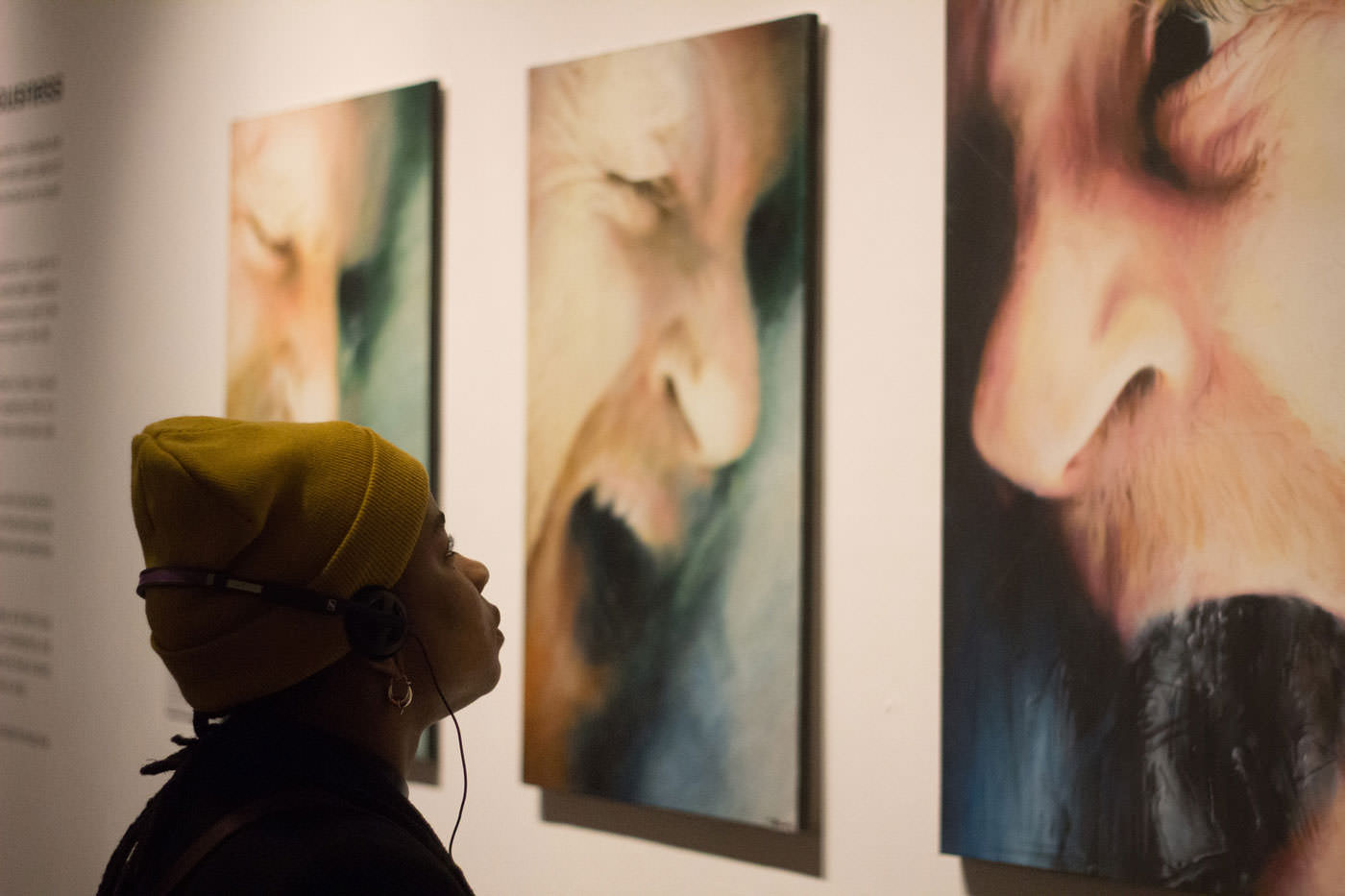
Running for the first time at the beginning of 2017; Altered States Of Consciousness is a live immersive art exhibition that provided visitors with an opportunity to challenge their own perceptions of mental health and normality, allowing them to appreciate what it feels like to hear voices, see visions and have other unusual sensory experiences.
Designed to help breakdown the stigma associated with these conditions; the exhibition combined visual art, multimedia and academic research to provoke debate around what is considered part of the ‘normal’ human experience.
The exhibition, produced by Phoebe Roberts, is the result of a far-reaching collaboration between Dr Helen Fisher, Senior Lecturer & MQ Fellow in the Institute of Psychiatry, Psychology & Neuroscience at King’s College London; artist Rich Maskey; mental health campaigner Jonny Benjamin MBE; the Voice Collective, a London-wide project that supports children and young people with unusual sensory experiences; and Debut Contemporary gallery.
The initiative came about as part of the Arts, Health & Wellbeing Programme at King’s College London that explores how the arts can enhance health and wellbeing in clinical and care settings, developing new conversations and collaborations.
After the success of this proof-of-concept installation, and a positive reaction from public, press and academics, the Altered States team are seeking funding to develop the installation and reach a wider public audience.
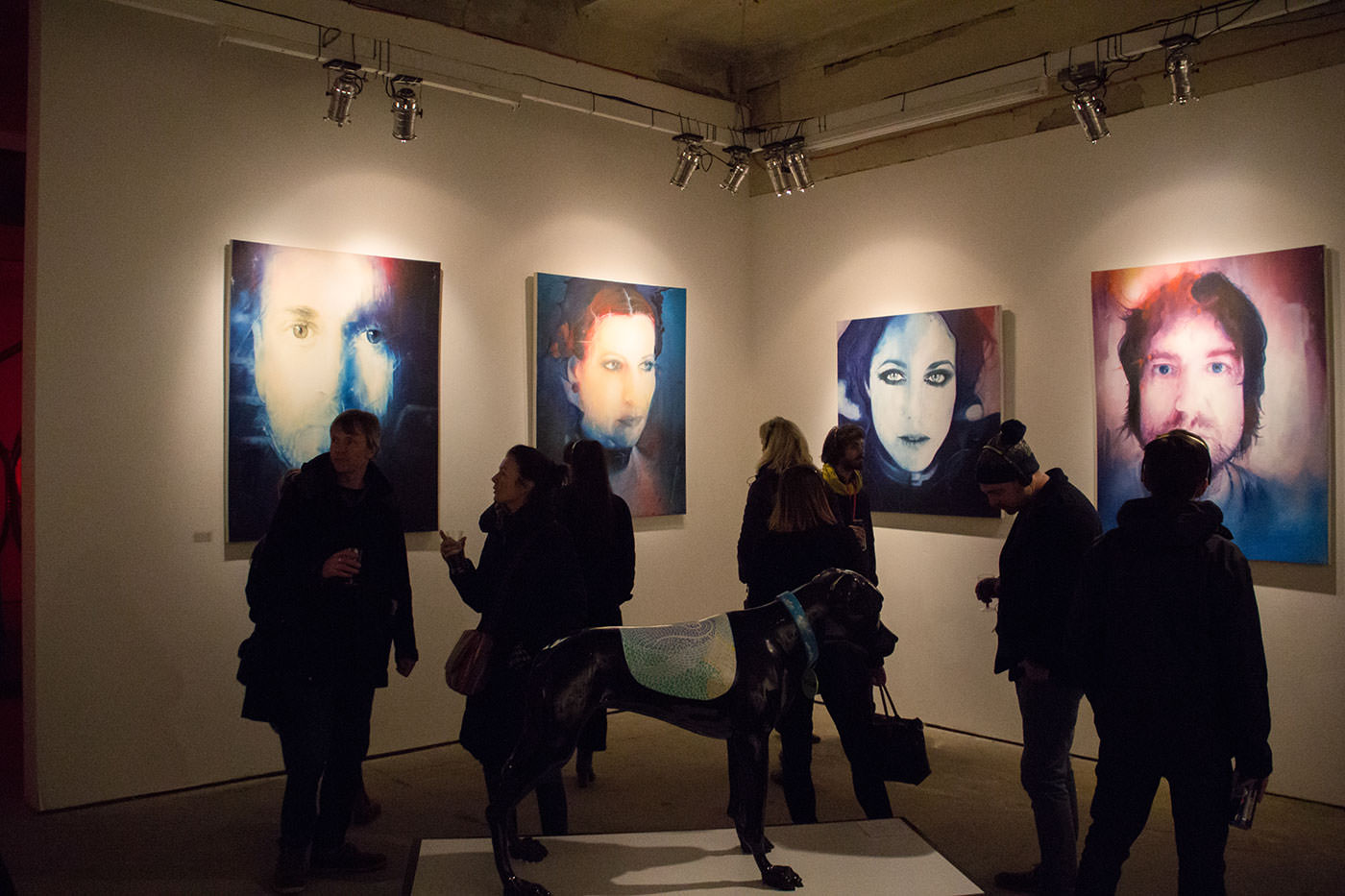
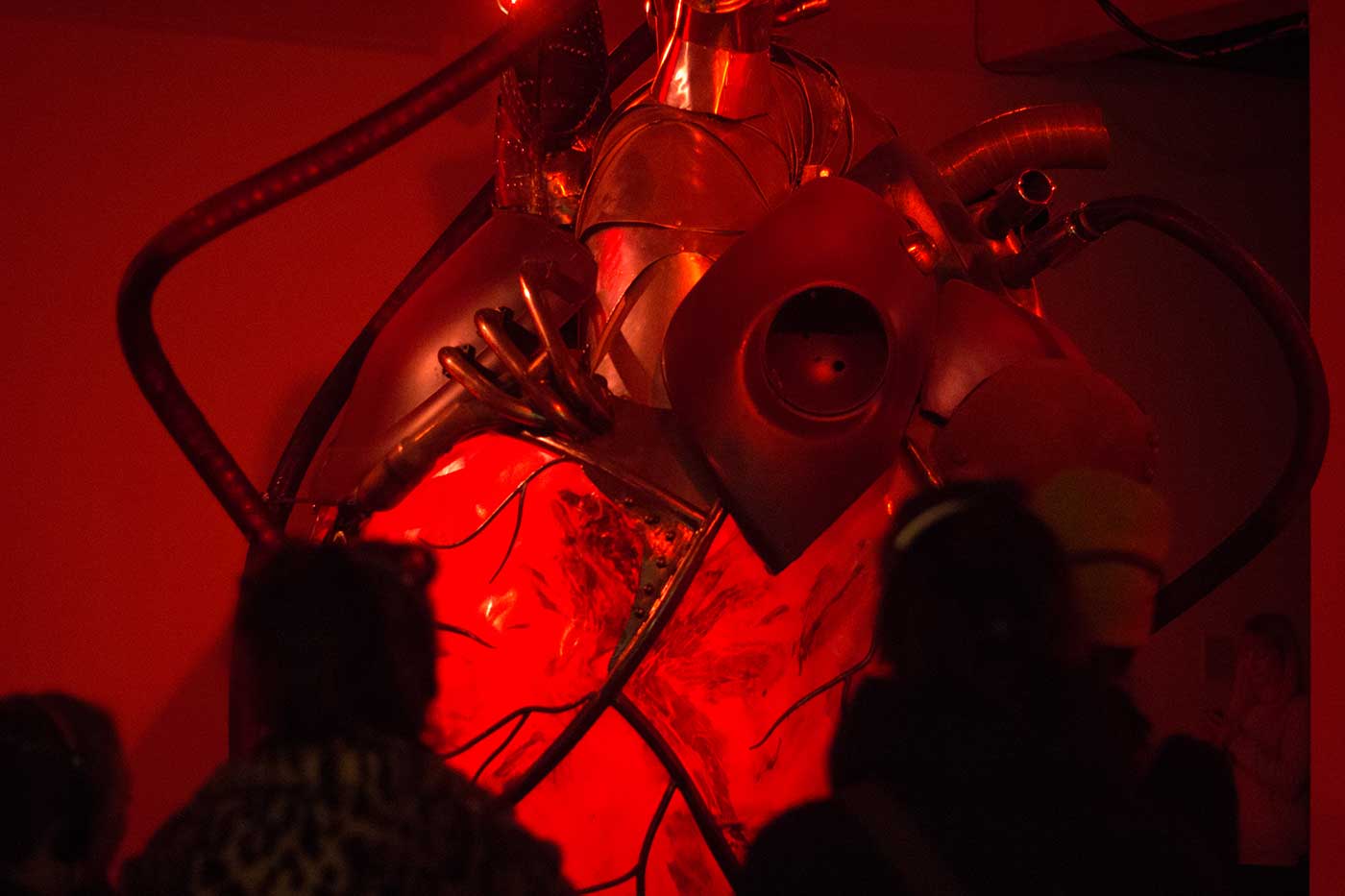
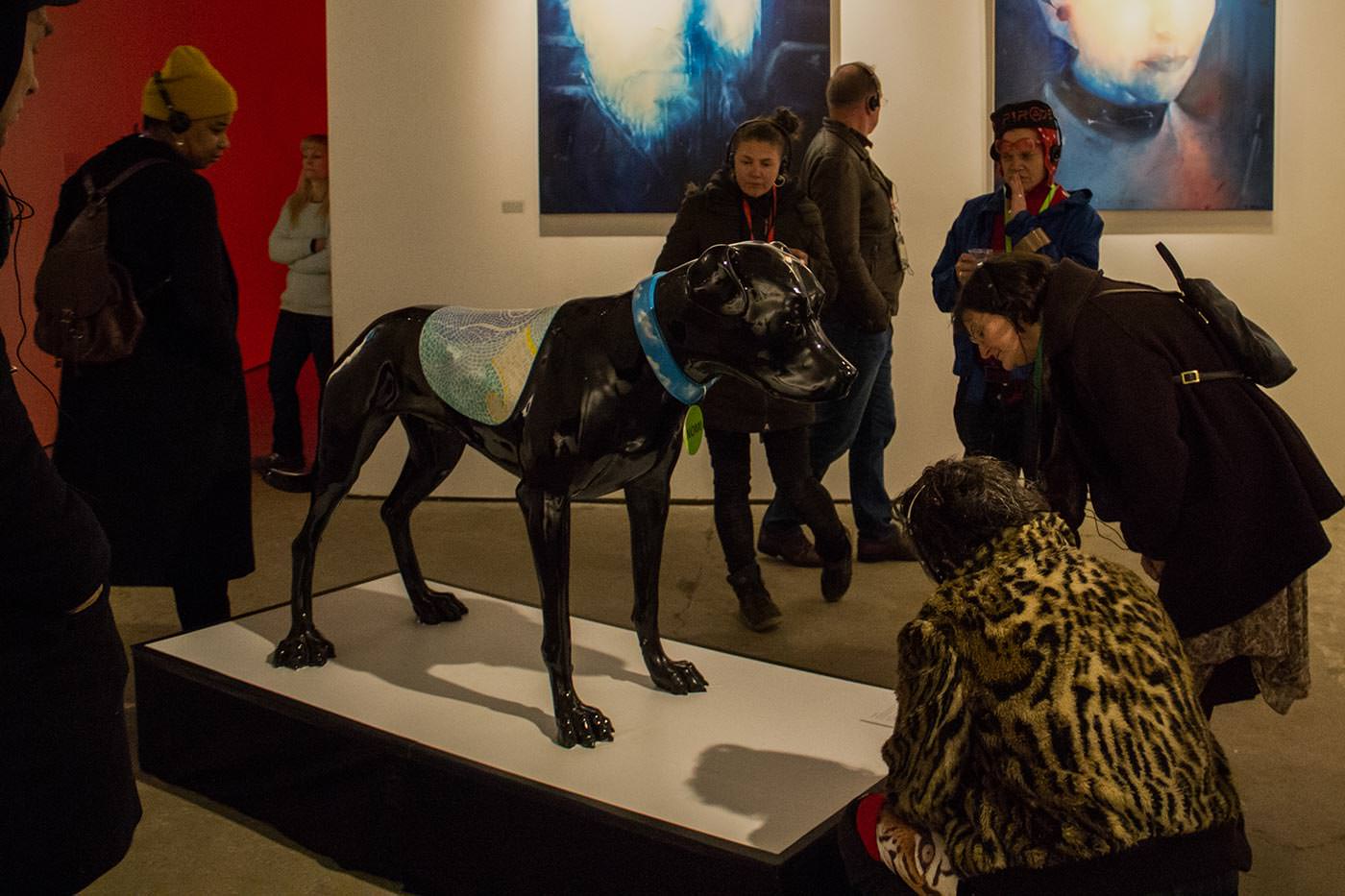
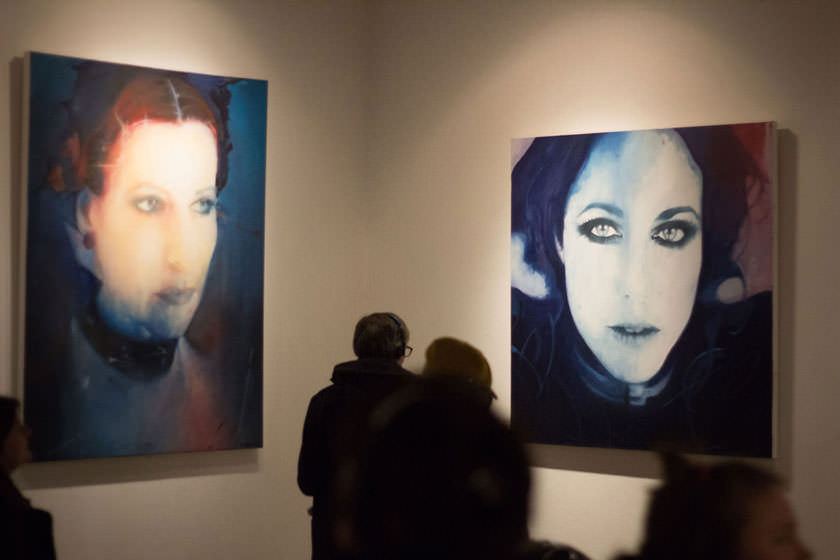
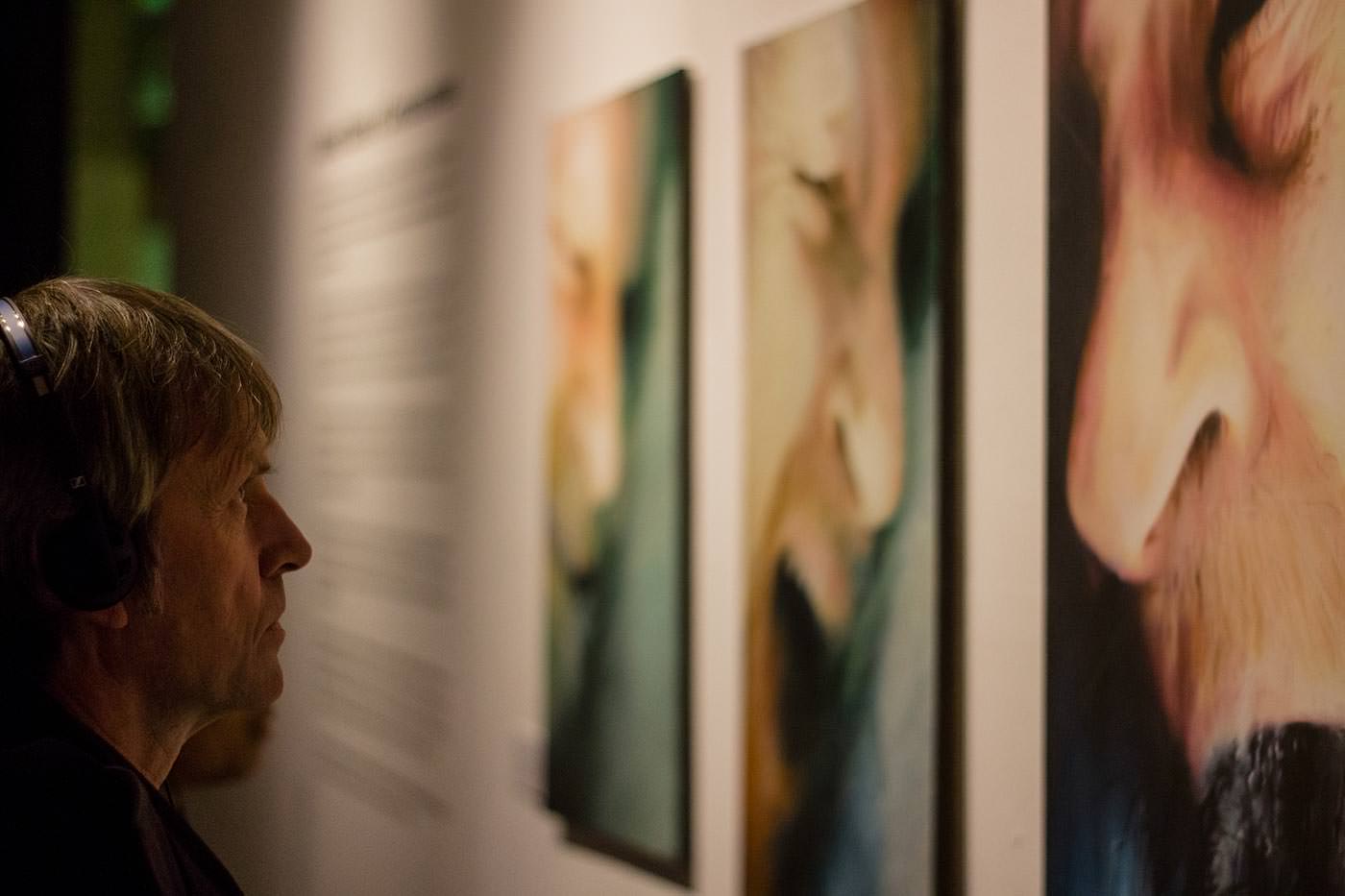
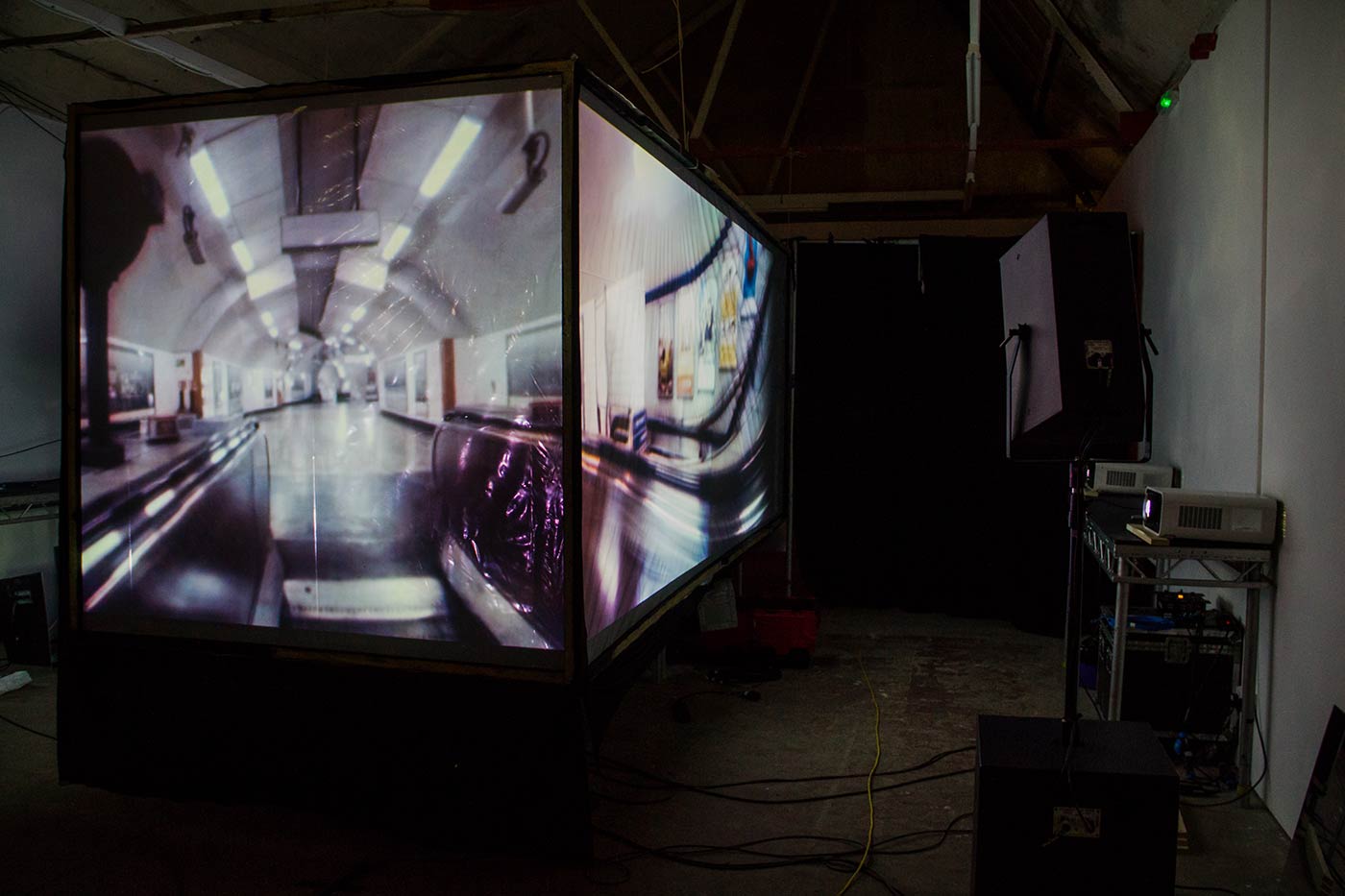
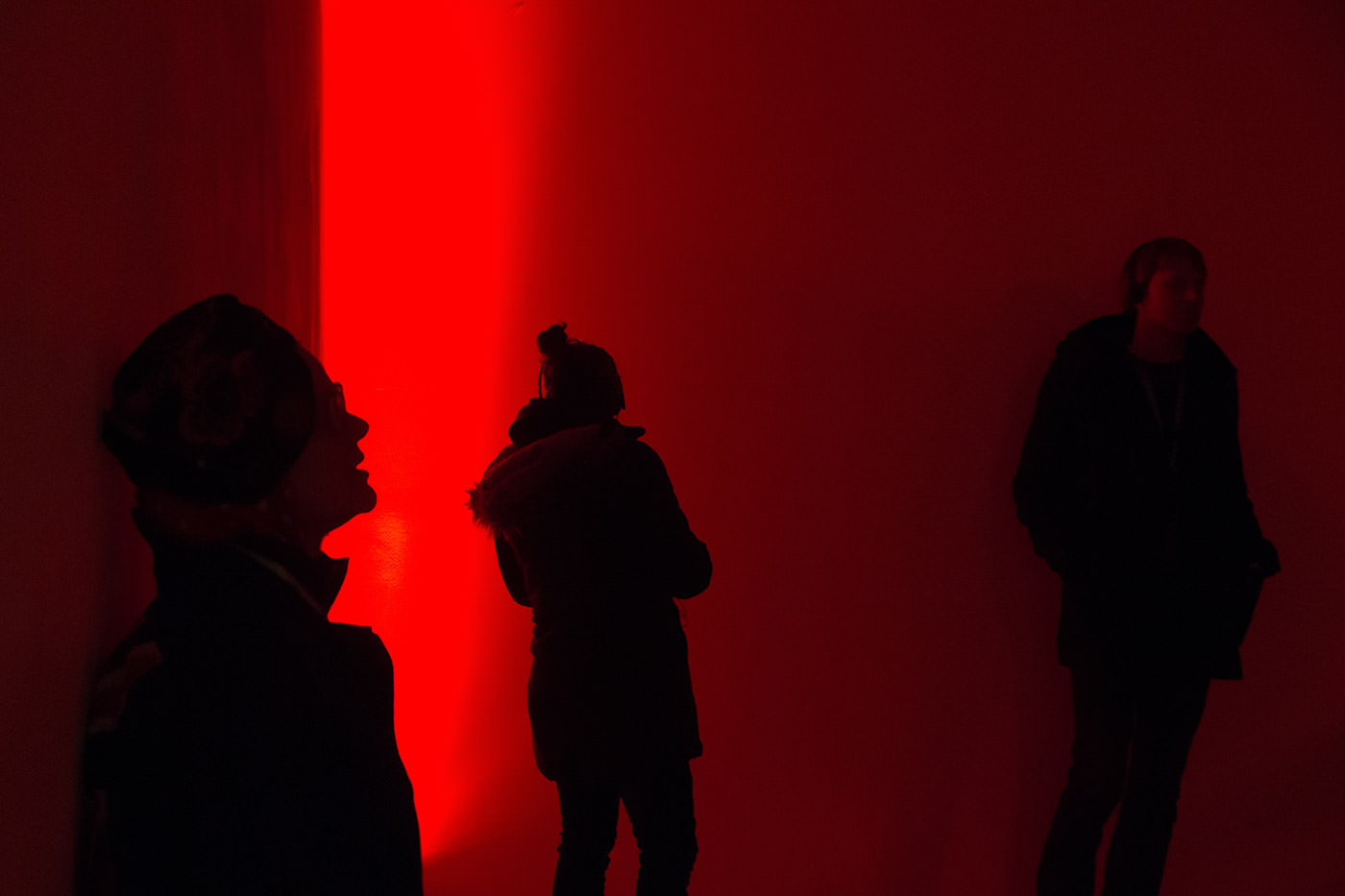
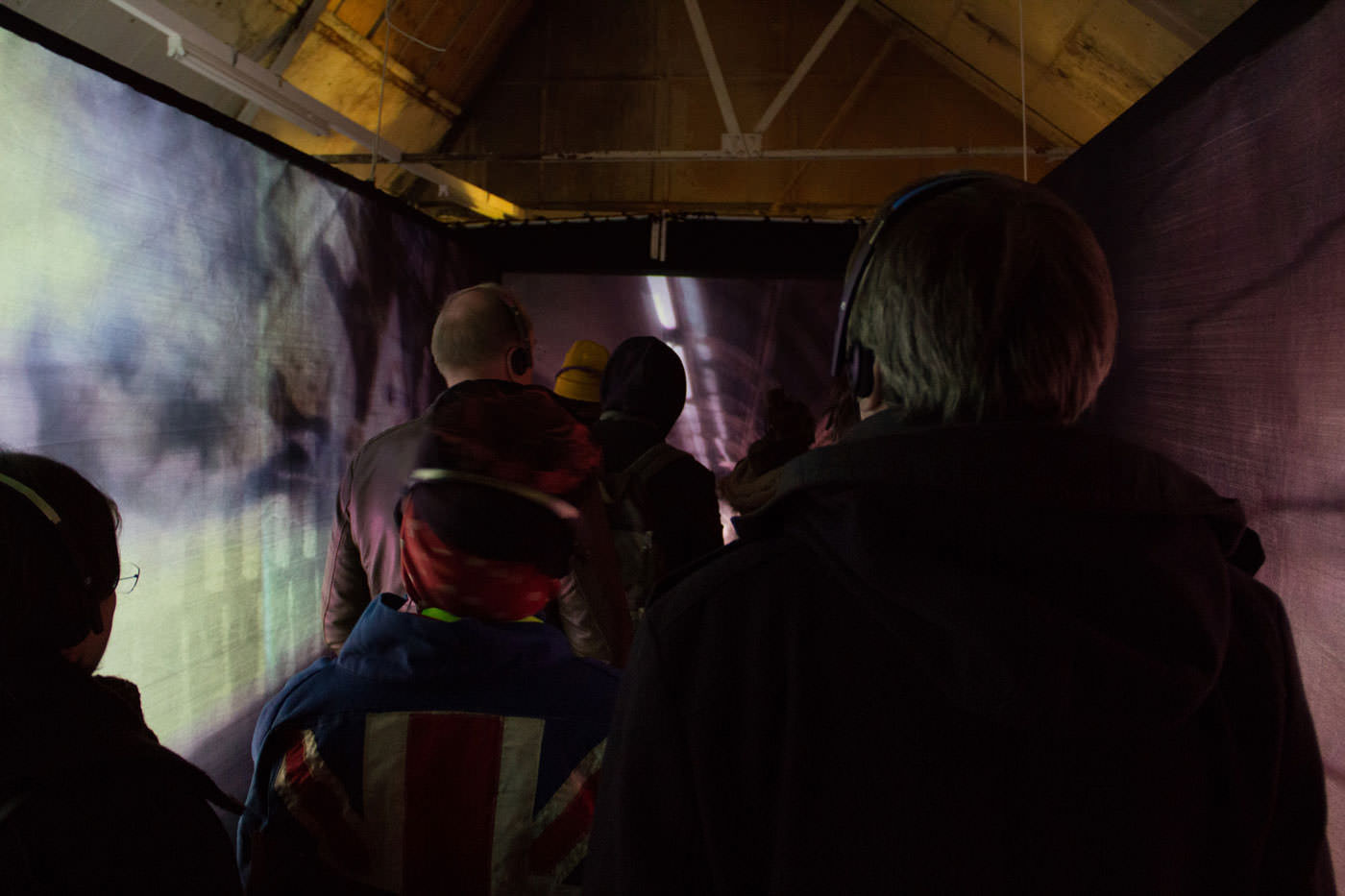
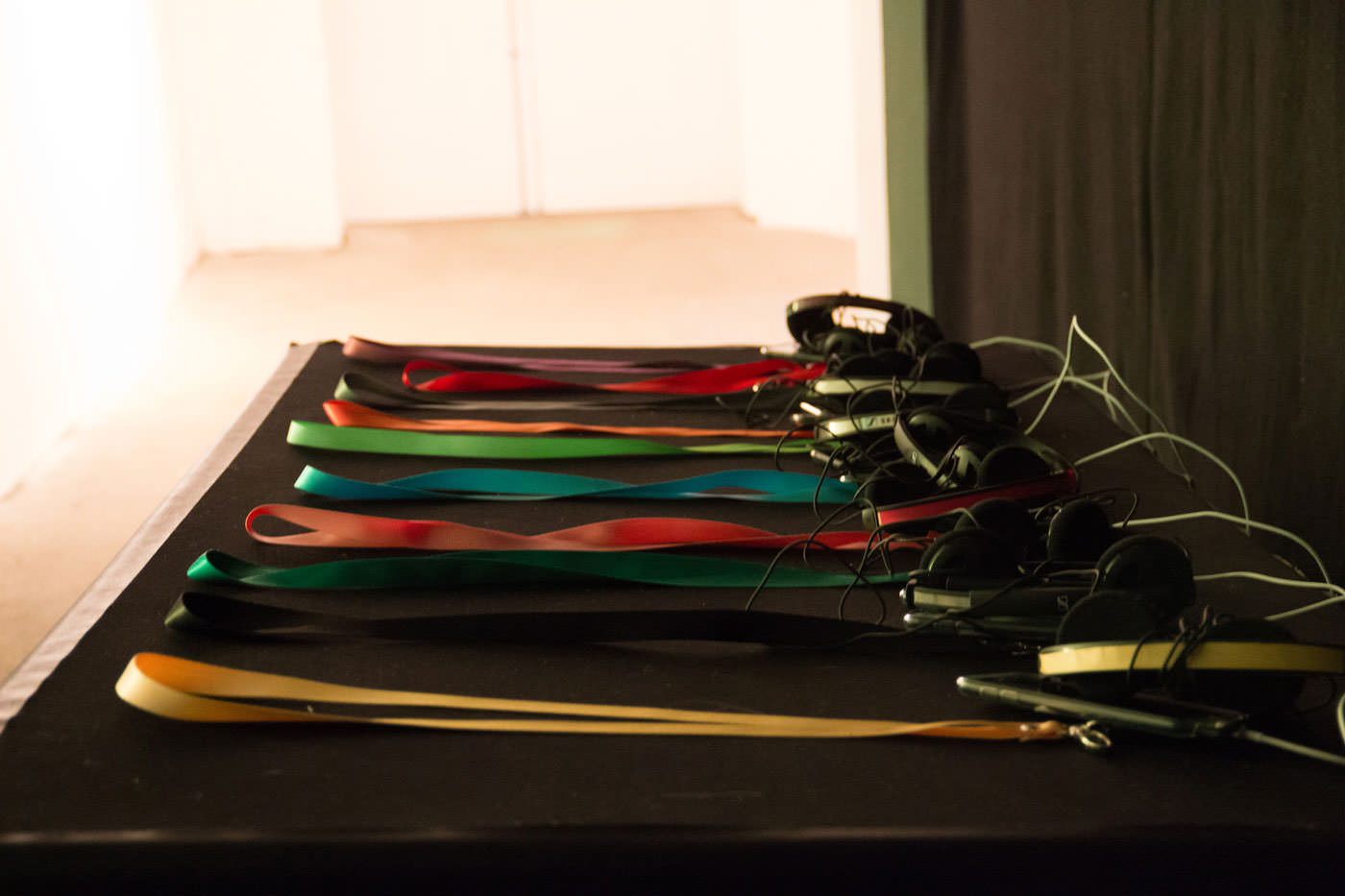
This video is an except from the tube platform installation at the Altered States of Consciousness exhibition. The video was projected on a life-size scale in 270 degrees, surrounding the audience on three sides.
In these short excerpts from the audio tour, you can hear the voice of the tour guide and three examples of the different characters audience members experienced whilst exploring the gallery space.
The exhibition was featured on the BBC World Service Health Check broadcast with Claudia Hammond (starts ~18mins, 16 secs), and in an article in The Psychologist.
Two academic papers have been published on the exhibition to date:
Riches S, Maskey R, Waddingham R, Benjamin J, Dishman P, Tebrook C, Mundy E, Roberts P, Fisher HL. (2017). Altered States of Consciousness: Evaluation of a voice-hearing simulation during an immersive art exhibition. Early Intervention in Psychiatry, doi: 10.1111/eip.12497. Available by clicking here.
Riches S, Maskey R, Dishman P, Benjamin J, Waddingham R, Tebrook C, Mundy E, Roberts P, Fisher HL. (2018). Development, implementation and evaluation of Altered States of Consciousness: an immersive art exhibition designed to increase public awareness of psychotic experiences. Arts & Health, doi: 10.1080/17533015.2018.1443948.
Available by clicking here.
The arts can be a positive way to increase public awareness of mental health issues. Given that stigma about psychosis remains high despite common occurrences of psychotic experiences in the general population (e.g. hearing voices, seeing visions, and unusual sensory experiences), we decided that more targeted approaches may benefit stigma-reduction. Therefore, we developed a research project that aimed to use the immersive art installation Altered States of Consciousness to see whether it could increase public understanding of psychotic experiences. Our aim in this research was test whether the experience of a voice hearing simulation would improve public understanding of the subjective experience of auditory hallucinations and increase empathy towards individuals who hear voices and have other unusual sensory experiences.
During the exhibition, members of the public experienced an individualised voice hearing simulation experience in two real-world settings – an art gallery and the London Underground. One hundred and fifty visitors to the exhibition completed questionnaires about their views on voice hearing both immediately before and then again after their experience of the exhibition. Our analysis of these questionnaires showed that there were significant increases in understanding what it feels like to hear voices, compassion towards voice hearers, and comfort in talking about these experiences after the visitors had experienced the exhibition and the voice hearing simulation. In general, visitors reported that they enjoyed the simulation, felt they learned from their involvement, and did not find it stressful. These positive outcomes were published in an academic report in the Early Intervention in Psychiatry journal.
After the exhibition ended, a production team meeting identified exhibition strengths, challenges, and potential modifications that might be used in future projects. Another academic report (click here for paper) details these outcomes as well as outlining the development stages of the whole project, which included workshops with people with lived experience, training actors to perform ‘voices’, sourcing artworks, and producing a voice hearing simulation and video installation.
In addition, research suggests that the simulation of auditory hallucinations also has potential training applications for mental health clinicians, by providing them with a subjective, experiential understanding of voice hearing. With this in mind, we were aware that a significant number of the visitors to the exhibition were trainee clinical psychologists and so we followed-up these visitors to ask them about their experience in more depth. We found that the simulation had significant benefits on the training and clinical practice of these trainee clinical psychologists and we are currently writing these findings up for publication.
Overall, all of this research suggests that the Altered States of Consciousness exhibition enabled visitors to have a personal experience of hearing voices and increased their understanding of these phenomena. It suggests that the exhibition and voice hearing simulation has further potential for public engagement, stigma reduction, and clinical training.
Due to the exhibition’s success, we are planning to apply for further funding to expand it further and hope to tour a revised version at festivals and community events across the country over the next couple of years to reach a much wider audience. Additionally, we are keen to explore whether the development of an online version of the exhibition might be possible, and if it could be adapted for a range of public settings (e.g., actual museums, art galleries, tube stations, etc.). Given the apparent impact on the clinical psychology trainees that attended we’re also keen to investigate further whether aspects of the exhibition could provide an effective teaching tool for mental health professionals.
Dr Helen Fisher
Dr Helen Fisher is a Senior Lecturer & MQ Fellow in the MRC Social Genetic & Developmental Psychiatry Centre, Institute of Psychiatry, Psychology & Neuroscience at King’s College London. Dr Fisher’s research has highlighted that around 1 in 20 children and adolescents hear voices, see visions, feel paranoid or have other unusual sensory experiences. These experiences can be very distressing (though not always). Although for many these experiences are transitory, in a minority they increase the likelihood that these children will engage in self-harming behaviours and develop severe mental illnesses, including schizophrenia.
Rich Maskey - Artist
Rich is a freelance Creative Director who has worked in the media industry for 7 years - shooting, lighting and producing films. He is always looking to develop new ways to engage and communicate with an audience. An emerging branch of his work uses the latest digital lighting technology and computer code to create interactive, site-specific installations at festivals, live shows and events. Rich has a degree in biosciences and an on-going interest in mental health and the way it is communicated in the media. Another significant aspect of his work portfolio is underwater photography and free diving so he is often found in warmer climates.
Voice Collective - Contributor
Voice Collective is a London-wide project that supports children and young people who hear voices, see visions or have other unusual sensory experiences. They also offer support for parents/families and training for youth workers, social workers, mental health professionals and other supporters. For this project they have brought together a group of young people who want to challenge the stigma surrounding hearing voices and seeing visions and use their own experiences and creativity to develop ways of raising awareness, challenge misconceptions and help other young people to get the confidence to reach out for help if they need it.
Jonny Benjamin MBE - Contributor
Jonny Benjamin is an award-winning mental health campaigner, film producer, public speaker, writer and vlogger from London. In the Queen’s 2017 New Year Honours List, Jonny has been awarded an MBE for his services to mental health and suicide prevention. At the age of 20 he was diagnosed with schizoaffective disorder, a combination of schizophrenia and bipolar, and later began making films on YouTube about the condition that have since been watched by hundreds of thousands of people. Jonny now speaks publicly about living with mental illness and has written articles and given various interviews on TV, Radio and in print around the world to help educate and break stigma.
Toby Brown - Artist
Toby creates dark and intense art that is powerful to view, work that grabs your attention and inspires your senses. Toby produces images from a mist with a mysterious, impactful and compelling atmosphere, using music as his inspiration and scrubbing the paint onto the canvas, then building the tones and the shades to create artwork that is spectacular. Work that makes you stop and linger, intriguing and depthful art that hits your unconsciousness and strikes your heart.
Debut Contemporary - Contributor
Debut Contemporary is an award winning art incubator with a professional development platform and a vibrant contemporary art gallery space in Notting Hill, West London. Our mission is to assist talented and ambitious artists eager to turn their art practice into a successful career and a viable business.Debut Contemporary won the prestigious h.Club 100 Industry award, being chosen as one of the UK’s top 10 most influential, visionary and pioneering businesses in art and design, competing alongside the likes of TATE, V&A, the Fine Art Society and Turner Prize winners and nominees.
Felicity Jones - Artist
Felicity Jones is a creative blacksmith and fabricator who lives in London on her 90 year old boat. Coming from an arts background she fell in love with metal working and studied at Hereford National School of Blacksmithing. Her contemporary approach to Blacksmithing has led her to create a range of work, from functional domestic pieces to large scale mechanical sculpture in the public realm.
Phoebe Roberts - Producer
From Hackney, East London, Phoebe is an established producer who has worked for 15 years delivering live music events, tours, photographic exhibitions and online content. Phoebe now focuses her career on producing live music shows and relevant content aimed at a new youth audience. Her production credits include live gigs and tours for Lana Del Rey and Selina Gomez to Bonobo, The Wu Tang Clan and the Hypnotic Brass Ensemble. She has recently finished a series of art and music events for Converse.
Patrick Dishman - Contributor
Patrick is an artist, performer and designer. He enjoys working at the intersection between art and technology; combining code, sound and live performance. He has previously created immersive performance work for both Glastonbury and Brighton festivals and was artist in residence at The Basement as a member of live art performance group The Honest Crowd.
Dr. Helen Fisher and Rich Maskey would like to give their heartfelt thanks to the following people all of whom have donated their time to the project.
Our Actors:
Josh Enright, Hannah Cecily, Becks Rosen, Sonja Taylor, Leila Nashef, Pam McNay, Jeremy Small
Our Crew:
Laura Hester, Jouna Lansman, Nick Edwards Tombs, Rami Ali, Dan Hart, Moya Russo
Our Suppliers:
Sound Services, PF Events, Southbank Centre, QED Productions, OSCOMMS, Cover it UP
Our Funders:
If you would like to find out more information about the Altered States of Consciouness project please get in touch at info@alteredstates.io